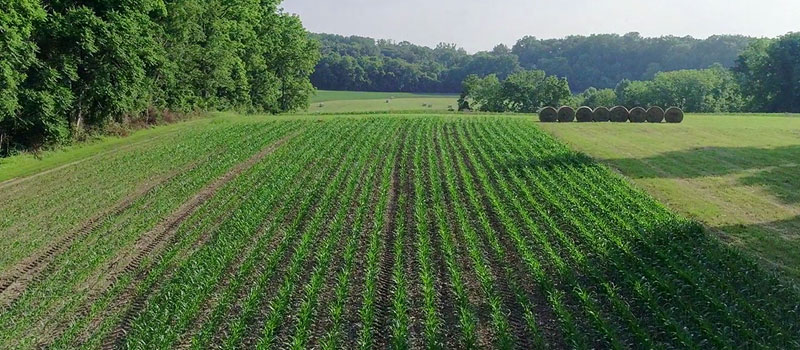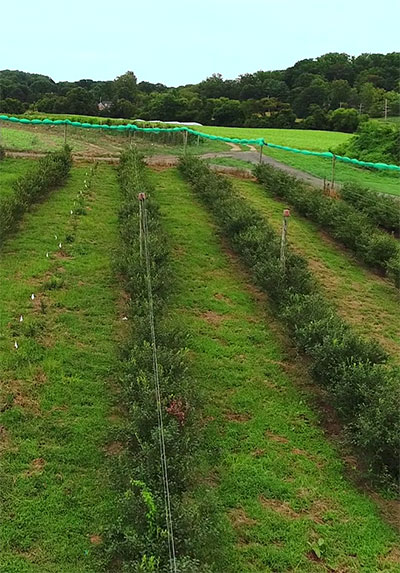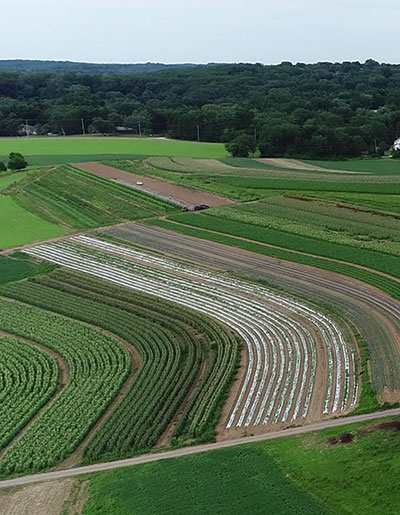Agricultural conservation easements reflect the unique characteristics of each property and the needs of individual landowners.
How it Works
An agricultural conservation easement is a legally binding agreement between the landowner and a qualified third party that is placed on agricultural land to ensure that the land remains in agricultural production by removing most or all of its non-agricultural development potential. When a land trust or government body acquires an "easement" on a property, it does not purchase the property from its owner. Instead, a contract with the landowner is made which limits use of the land for a specific purpose.
Some owners of farmland donate the value of the development rights, some require compensation of the full value of the rights being removed, and most fall somewhere in between by donating varying percentages of the value. The particular details of each transaction offer opportunities for compensation in many ways including tax benefits from donating value, tax benefits from reducing the value of the farm “estate,” or income that may be received. In addition, landowners can elect to have their payments spread out over five years for tax purposes.
The price paid for purchase of an easement is limited by the easement value, as determined by an appraisal and the program regulations. Farmland easements that receive county or state funds must be preserved in perpetuity. The terms of the easement remain in effect for the duration of the easement regardless of any changes in ownership.
The county's involvement in farmland preservation is linked to the Commonwealth of Pennsylvania's statewide Agricultural Easement Program which was established in 1988 to protect productive farmlands from development through the use of agricultural easements. This program was built on the Agricultural Area Securities Law (also known as PA Act 43 of 1981), was established through PA Act 149 of 1988, and is administered by the State Department of Agriculture.
Benefits
Economic Benefits
Farmlands and agricultural activity provide economic benefits that support and sustain the rural economy and lifestyle, including jobs and investment. Agricultural land generates more in tax revenue than in government costs. Additional benefits of preserved farmland are well documented in the 2019 report, Return on Environment.
Community Character Benefits
Preserved farmland reinforces existing community character, retains open space, and maintains historic landscapes, helping preserve the county's Rural and Agricultural Landscapes.
Agricultural Benefits
When property owners preserve farmland, they get to keep their land and get paid for much of the land’s value, which can be reinvested in farm equipment, new buildings, or additional land. In addition, when farms are preserved, they are not developed into residential subdivisions where new residents might complain about normal agricultural operations.
Conservation Benefits
Landowners with agricultural easements are required to have an up to date conservation plan, which focuses on the impact the farm operation has on natural resources, such as soils and waterways.
Wildlife Habitat Benefits
Because farmlands have extensive open lands and are largely uninhabited by humans at most times, they are suitable as habitat for some forms of wildlife, especially animals that are active at night.
Viewshed Benefits
Preserving farmland preserves the views for the surrounding residents and visitors to enjoy.
Enrollment in an Agricultural Security Area is required to participate in Chester County's Ag Easement Program.
Get Started
One fundamental step is by adopting Agricultural Security Areas (ASA) and keeping them up to date. Properties enrolled in an ASA should possess slight or moderate slopes, have productive agricultural soils, and be located on currently-productive farmlands. Being enrolled in the township’s ASA is a prerequisite of being eligible to be preserved through Chester County's Ag Easement Program.
Townships can also provide funding in partnership with the county which will increase its priority in the county programs and help each municipality stretch limited conservation dollars. They can support continued county, state and federally funding for these programs. Townships can also make sure to successfully operate a farm nowadays.
Agricultural conservation easements are most commonly used in agricultural or rural settings. However, advances in technology and the "buy local" movement have made it possible to cultivate farm produce in urbanized areas. An urban farm that meets the size requirement and other criteria could possibly be eased. It is this constantly evolving nature of farming that has led to the wide variety of programs and funding opportunities at the county level.
Farmland Preservation in Chester County is guided by program guidelines which have been adopted by the Chester County Agricultural Land Preservation Board (ALPB), and approved by the Commonwealth of Pennsylvania ALPB. The state guidelines specifically layout the minimum criteria for a farm to qualify for consideration into the program:
The county program shall consider the quality of the farmland tract, using the USDA-NRCS soil classifications.
- (1) All parcels of the farmland tract application must be properly recorded in an Agricultural Security Area consisting of at least 500 acres.
- (2) The farmland tract shall encompass:
- (a) at least 50 contiguous acres, or
- (b) at least 10 acres producing a crop unique to the area, or
- (c) at least 10 acres contiguous to a property which has a perpetual conservation easement in place which is held by a "qualified conservation organization", as defined in Section 170(h)(3) of the Internal Revenue Code.
- (3) In the farmland tract, at least 50% of the soils shall be available for agricultural production and in capability classes I through IV.
- (4) The farmland tract shall contain the greater of 50% or 10 acres of harvested cropland, pasture or grazing land.
Chester County also has the following alternative:
When there are no Commonwealth funds involved, the county reserves the right to make an exception in cases when the farmland tract is at least 25 acres if the farmland tract is owned and operated as an integral piece of an agricultural operation unit that has a tract of at least 25 acres already permanently preserved. The tracts need not be adjacent.
Considerations
Funding Availability
Applications for the purchase of agricultural easements is competitive and requests typically exceed available program funds.
Public Access and Trails
Most landowners who preserve their property are not looking to allow public access, since their farm is a privately owned business and not open to the general public. Any trail easement would need to be agreed upon by the landowner and organization creating the conservation easement. While trail easements are not a required part of Chester County’s preservation program, working with the county to provide for trail easements will allow for increased trail connectivity throughout the region. If trail easements are being considered, they should be put in place before or concurrently with the conservation easement, since the state program does not allow trail easements on land that has been preserved with an agricultural easement. Municipalities should consider trail networks as part of their open space and recreation planning so that potential trail corridors can be identified prior to either preservation or development proposals.
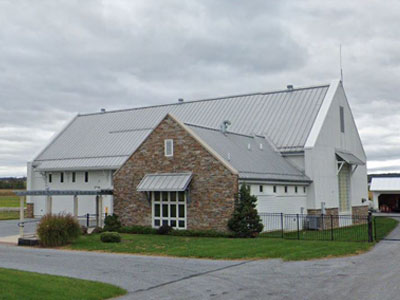
Honey Brook Township
Honey Brook Township has a Land Preservation Plan, which is an off-shoot of their Comprehensive Plan and focuses on what the township Land Preservation Board plans on accomplishing.
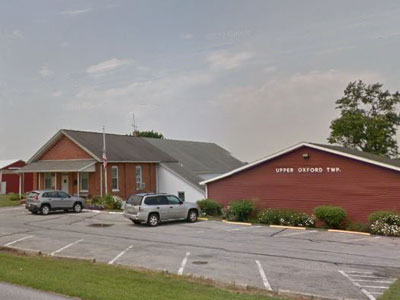
Upper Oxford Township
Upper Oxford is an example of a municipality that supports farmland preservation efforts.
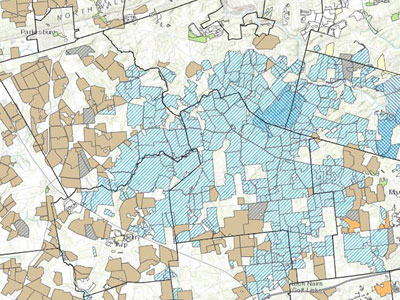
Chester County
Farmland currently protected through agricultural easements can be viewed on Chester County's interactive Protected Open Space Map.


